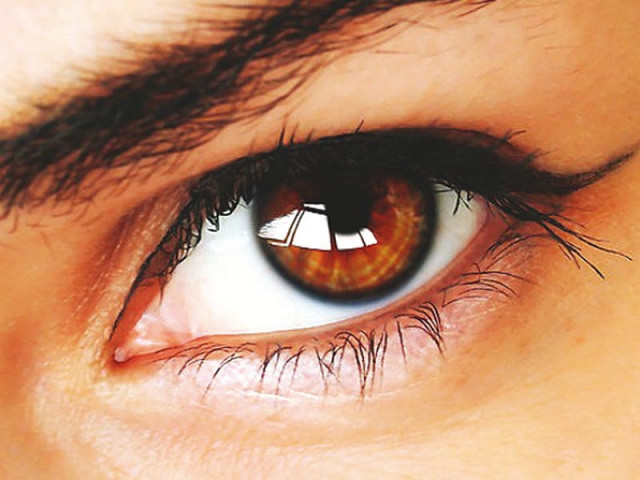7 Weird reasons your eyesight is changing
Along with Vitamin D deficiencies, lots of other odd things may be to blame for your sudden sight problems

Advances in technology have introduced a new eyesight correcting method — but is it safe?.
You haven’t been outdoors in a while
Several studies have correlated spending time indoors to nearsightedness, especially among young adults and children. Getting outside may, in fact, prevent this vision problem. The reason — sunlight causes your pupils to shrink, which reduces visual blur, suggest a study from the University of Sydney in Australia. The study authors say sunlight may also strengthen the eye through the release of the neurotransmitter dopamine, which spikes when your retinas are exposed to natural light. If you’re experiencing blurry vision lately, you probably need more sun instead of glasses.
You’re not a fan of fruit
If you’re having trouble seeing at night particularly, oxidative stress (a disturbance in the balance between the production of reactive oxygen species and antioxidant defences) may be partly to blame, suggests research from the University of Massachusetts Medical School. Several studies have linked eating Vitamic C-packed fruit to improve night vision. The antioxidants in fruits like pomegranates, oranges and avocados may help limit the oxidative damage that happens to the eyes, as you age, shows research in Molecular Nutrition and Food Research.
You’re low in Vitamin D
People, especially women who get plenty of vitamin D are roughly 44 per cent less likely to develop age-related macular degeneration (AMD), shows research from the University of Buffalo. AMD is the leading cause of vision loss among people older than 50, according to the National Eye Institute. But vitamin D — whether from fish, direct sunlight, or D-fortified foods like milk and juice may battle the type of inflammation that contributes to AMD, the study authors say. Another reason to up your milk intake.
You’re pursuing a Master’s degree
Research has found a link between lots of reading and nearsightedness. Your eyes work much harder to focus on things that are close (as opposed to far away). Researchers have theorised that burying your face in books, can cause the condition of myopia. Higher education and all the textbook reading that comes alongside it, has been associated with higher rates of nearsightedness, shows a study from the Ophthalmic & Physiological Optics. It’s definitely not a bad thing to pursue post-grad education, but be cautious to take lots of breaks in between intense reading sessions.
You’re attached to technology
Hours of exposure to the harsh “blue light” on your laptop, tablet, and phone screens could actually lead to “computer vision syndrome” — a medical term for eye-related health problems ranging from blurred vision to headaches and nausea. If your eyes hurt, feel sore or strained after spending time on your devices, eye-specialists recommend you follow the 20-20-20 rule: Every 20 minutes, stare at something 20 feet away for 20 seconds.
You’re on acne medication
So the acne disappeared but the vision got flawed — as if upsetting about your complexion weren’t enough, some types of acne medication consist of chemicals that may cause blurriness or night-vision problems, shows a study from Lens and Eye Toxicity Research. Isotretinoin, the ingredient in most acne drugs, may increase the amount of UV light your eyes absorb, which could explain the damage to the eyes, the study author says. Don’t cut out the meds altogether but ask your doctor for an alternative.
You have diabetes
The condition is so widespread in Pakistan but only a few of us are aware of the effects diabetes has on the eyes. Diabetes is one of the most common causes of something called “macular edema” — a form of blurred vision. In fact, blurry vision may be one of the earliest symptoms that you’re developing type 2 diabetes. The disease cuts off blood flow to parts of the retina, and can ultimately lead to blindness, if it’s not caught in the earlier stages, suggests research from Indiana University. If you feel your vision is suddenly got blurry, maybe you should get a test to rule out diabetes.
Published in The Express Tribune, March 25th, 2015.
Like Life & Style on Facebook, follow @ETLifeandStyle on Twitter for the latest in fashion, gossip and entertainment.



















COMMENTS
Comments are moderated and generally will be posted if they are on-topic and not abusive.
For more information, please see our Comments FAQ